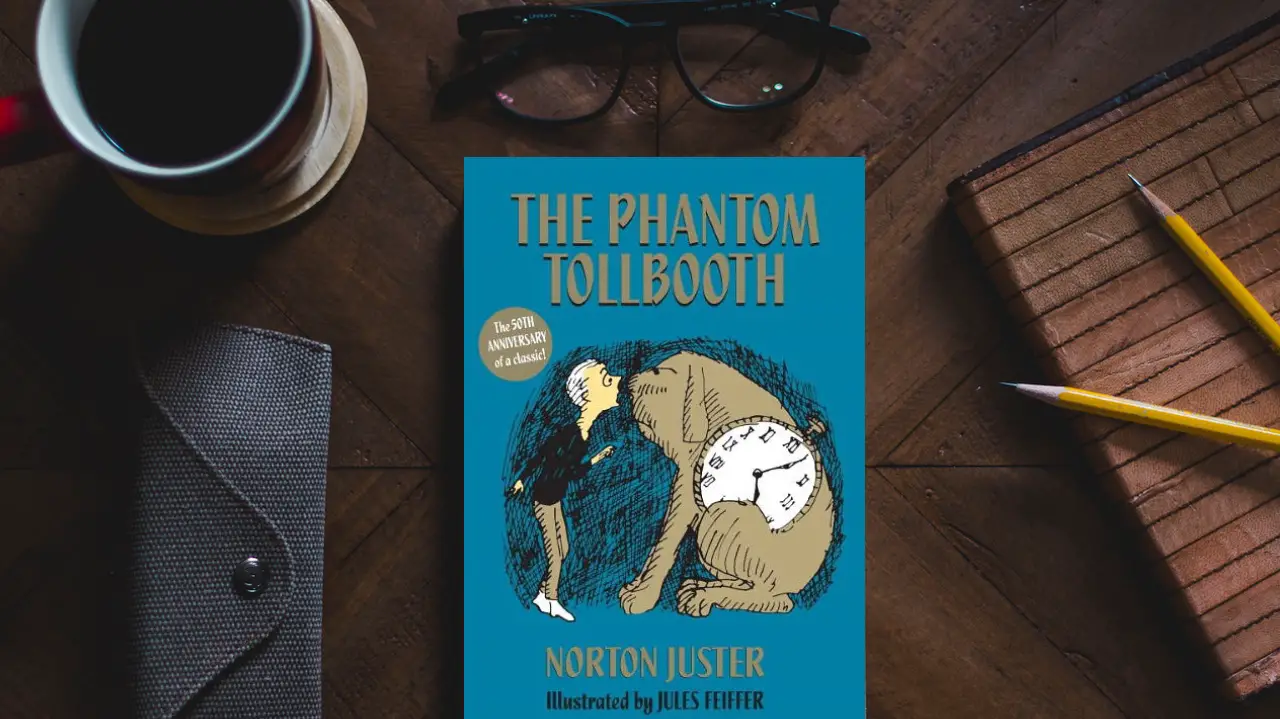Looking back on my favorite childhood books, I see The Phantom Tollbooth standing proudly near the front of a long and delightful line.
Norton Juster’s fairytale (a better Alice in Wonderland than Alice in Wonderland) is like an old friend with whom you can have a tête-à-tête anywhere, anytime, because you’re just that tight. It’s a comfortable relationship, a fond one, and – as others who have fallen in love with the story can attest – pretty much indissoluble. One does not simply outgrow a book this good.
Our hero is Milo. Milo the Drab. Milo the Apathetic. Milo the Young, Restless, and Uninformed. What he mostly does is mope… until he assembles a magical tollbooth and drives through it into another world entirely. There he meets a watchdog named Tock, jumps to an island (it’s called Conclusions), becomes embroiled in a war between King Azaz of Dictionopolis and the Mathemagician of Digitopolis, and sets out to rescue the Princesses Rhyme and Reason. Along the way, he comes to understand an important truth: life is a wonder and a gift. Boredom? You don’t have the time for it.
If you’re wearing socks, this book will charm them off of you, and the wit is sharp enough to slay dragons with.
If you’re wearing socks, this book will charm them off of you, and the wit is sharp enough to slay dragons with. Juster’s gift for puns, wisecracks, and wordplay is such that adults will savor the humor as much or more than the children will. Scratchy illustrations by Jules Fieffer only add to the fun.
It was Lewis who said that “a children’s story that can only be enjoyed by children is not a good children’s story in the slightest.” By that standard, or any other standard worth considering, The Phantom Tollbooth isn’t simply a good children’s story: it’s one of the best.
Now I must excuse myself. There’s rereading to be done.


I loved this book growing up!